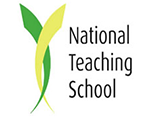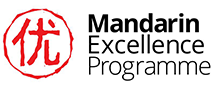English
The English department offers two courses: English Literature and English Language & Literature
English Literature A Level
Why study English Literature A LEVEL?
Students love studying English Literature. The course is both stimulating and interesting as it allows you a chance to actively engage with texts from different periods and cultures as well as giving you a foundation into the major ideas underpinning the way we live today.
Students of English Literature A Level will be introduced to prose, poetry and drama from different periods by different writers. Not only will you read and study writers whose work has stood the test of time, such as Shakespeare, you will also get the opportunity to read more contemporary work, especially for the non-exam assessment.
You will have opportunities to develop your creativity, in the ways you think about
literature, about language and in the ways you enhance your expertise in analysing texts, and discuss and develop ideas. This is a course for students who love reading!
What will I study?
You will study the OCR English Literature A Level course, which includes a coursework element worth 20% of the overall marks. The remaining 80% is divided into two components:
- Drama and poetry pre-1900 (01), for which you study one play by Shakespeare. In addition, you study one pre-1900 drama text and one pre-1900 poetry text. These will illuminate one another so you establish connections between texts from the genres of drama and poetry.
- Comparative and contextual study (02), you study at least two texts from one topic area (American Literature 1880-1940, or Gothic). This part of the course focuses on the significance and influence of contexts in which the texts were written and received.
- Non-exam assessment (component 03) students study three literary texts. The texts must include one prose text, one poetry text and one drama text, at least one of which must be published or performed in 2000 or later. Recent text choices include Bernadine Evaristo’s Girl, Woman, Other, Chimamanda Ngozi Adichie’s Half of a Yellow Sun and Mohsin Hamid’s Exit West.
What texts will I use?
Texts differ from group to group. Below are some examples of literature taught on the course
Plays:
- Shakespeare: The Tempest, Measure For Measure, Richard III, Hamlet
- John Webster: The Duchess of Malfi
- Oliver Goldsmith: She Stoops to Conquer
- Henrik Ibsen: A Doll’s House
Poetry:
- Geoffrey Chaucer: The Merchant’s Prologue and Tale
- John Milton: Paradise Lost Books 9 & 10
- Christina Rossetti: Selected Poems
Novels:
- F Scott Fitzgerald: The Great Gatsby
- Nella Larsen: Passing
- Edith Wharton: The Age of Innocence
English Language & Literature A Level
Why study English Language & Literature A level?
We cannot avoid communication, whether it’s the daily barrage of information from
various platforms, speaking and listening to others or reading subject-specific material in the classroom. It makes perfect sense that understanding how we communicate is one of the key skills we all require. English Language & Literature A level aims to help us to learn and understand the various ways in which we communicate through language, from conversational to formal spoken language, and literature, from non-fiction to fiction texts. If you have an interest in the world around you, in reading and writing and communicating, then this is the subject for you.
The course is both enjoyable and enriching as it allows you a chance to actively engage with texts from different periods and cultures, introduces you to a wide range of spoken and written forms of English and gives you an opportunity to express your own ideas through creative writing.
What will I study?
You will study the OCR English Language & Literature (EMC) A Level course, which includes a coursework element worth 20% of the overall marks. The remaining 80% is divided into three components:
- Exploring non-fiction and spoken texts (01), which is a comparative and contextual study of an anthology of spoken and written texts from different time periods, types of text and contexts.
- The language of poetry and plays (02), in which students explore poetic and dramatic texts through stylistic and dramatic analysis.
- Reading as a writer, writing as a reader (03) where students explore the nature of narrative in one prose fiction text from a choice of six and produce an original creative piece of writing in the narrative genre.
- Coursework component - Independent study: analysing and producing texts (04), students pursue a particular interest with an analytical comparative essay on non-fiction texts and produce a piece of original non-fiction writing in an appropriate genre.
What texts will I use?
Texts differ from group to group, but below are some examples of the literature taught on the course.
- Plays: Shakespeare: Othello
- Poetry: Jacob Sam-La Rose: Breaking Silence
- Novels: Charlotte Brontë: Jane Eyre and F. Scott Fitzgerald: The Great Gatsby
What is the difference between the English Language & Literature A Level and English Literature A level?
English Language & Literature A Level includes the study of non-fiction texts and has a creative writing component. The texts studied are more varied and can be more modern.
Why study English at Fortismere?
Fortismere has experienced and passionate teachers of English, who will challenge and inspire you on the A level courses. Fortismere has a fantastic programme of external speakers, including university academics and industry professionals, for students of English. Our A Level results are exceptional and an impressive number of Fortismere students go on to study English at prestigious universities.
Life beyond English A level?
Studying English A Level can open the door to an array of career paths such as law, journalism, film/TV production, advertising and marketing, teaching, politics, public relations and publishing.
Studying English keeps your options open. It is an academic and rigorous A Level, which universities and employers will recognise.
What do I need to start the course?
To study English Literature A Level or English Language & Literature A Level, we recommend at least grade 5 in both English Language and English Literature at GCSE.




